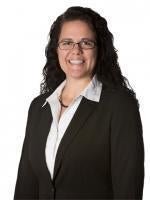The Department of Homeland Security (DHS) announced on May 6, 2014 the publication of two proposed rules to attract and retain highly skilled workers.
The first rule would allow spouses of certain H-1B holders to request employment authorization if their H-1B spouse is currently pursuing permanent residence through employment based sponsorship. H-1B dependents are currently not permitted to apply for work authorization. The H-1B visa is set aside for persons in specialty occupations that require theoretical or practical application of a body of highly specialized knowledge, such as scientists, engineers, or computer programmers. H-1B employees are admitted for an initial three year period, with a maximum limit of six years. H-1B workers have the ability to extend their H-1B status beyond the six years under certain circumstances, including if a permanent residence application has been filed prior to the end of the fifth year of the H-1B eligibility period; or, if the H-1B worker has a PERM labor certification approved by the Department of Labor and an I-140 Petition approved by DHS.
Under current regulations, H-4 dependents do not have the ability to apply for work authorization. According to this proposed rule, H-4 dependent spouses can apply for work authorization if the H-1B spouse:
-
Is the beneficiary of an approved Form I-140, Immigrant Petition for Alien Worker; or
-
Has been granted an extension of their authorized period of stay in the United States under the American Competitiveness in the Twenty-first Century Act of 2000 (AC21) as amended by the 21st Century Department of Justice Appropriations Authorization Act. AC21 permits H-1B workers seeking lawful permanent residence to work and remain in the United States beyond the six-year limit.
While this proposed rule will be welcome to an estimated 97,000 H-1B spouses who will be eligible to apply for employment authorization, this does not assist the H-1B spouses who are not in the permanent residence process who should also be permitted to contribute to the U.S. economy. By contrast, the L-2 dependent spouses of L-1 intracompany transfer employees are eligible to apply for work authorization, without the requirement of having to be in the permanent residence process.
The second proposed rule is aimed at enhancing opportunities for highly-skilled workers, including workers from Chile and Singapore (H-1B1) and Australia (E-3), as well as the Commonwealth of the Northern Mariana Island (CNMI)-Only Transitional Workers (CW-1) to bring them in line with other employer-sponsored nonimmigrant workers. The change to the regulation would:
-
Update the regulations to include nonimmigrant highly-skilled specialty occupation professionals from Chile and Singapore (H-1B1) and from Australia (E-3) in the list of classes of aliens authorized for employment incident to status with a specific employer;
-
Clarify that H-1B1 and principal E-3 nonimmigrants are allowed to work without having to separately apply to DHS for employment authorization.; and
-
Allow E-3, H-1B1 and CW-1 nonimmigrant workers up to 240 days of continued work authorization beyond the expiration date noted on their Form I-94, Arrival/Departure Record, while the extension request is pending.
Under current regulations, workers in E-3, H-1B1 or CW-1 generally apply for extensions outside of the U.S. because filing the extension in the U.S. can involve lengthy processing times. Not having the 240 days of continued work authorization while an extension is pending can jeopardize the lawful status of these workers.
Finally, the proposed rule would also expand the current list of evidentiary criteria for employment-based first preference (EB-1) outstanding professors and researchers to allow the submission of evidence comparable to the other forms of evidence already listed in the regulations. Outstanding Researchers petition for permanent residence as individuals who are internationally recognized for their outstanding achievements in a particular academic field. This proposal would harmonize the regulations for EB-1 outstanding professors and researchers with other employment-based immigrant categories that already allow for submission of comparable evidence.
The goal of both initiatives “will encourage highly skilled, specially trained individuals to remain in the United States and continue to support U.S. businesses and the growth of the U.S. economy,” said Deputy Secretary of Homeland Security Alejandro Mayorkas. “A concurrent goal is for the United States to maintain competitiveness with other countries that attract skilled foreign workers and offer employment authorization for spouses of skilled workers. American businesses continue to need skilled nonimmigrant and immigrant workers,” he added.
The U.S. Secretary of Commerce Penny Pritzker explained that “these two proposed rule changes are an integral part of the Administration’s efforts to strengthen entrepreneurship and innovation, and to help the United States attract and retain highly skilled immigrants.” “The fact is, we must do more to retain and attract world-class talent to the United States and these regulations put us on a path to doing that. These actions promise to unleash more of the extraordinary contributions that immigrants have always made to America’s innovation economy,” Pritzker said.
It is important to note that these are proposed rules only. The proposed rules will be published in the Federal Register and DHS will accept public comments through www.regulations.gov before the final rules are published and go into effect.


 />i
/>i
